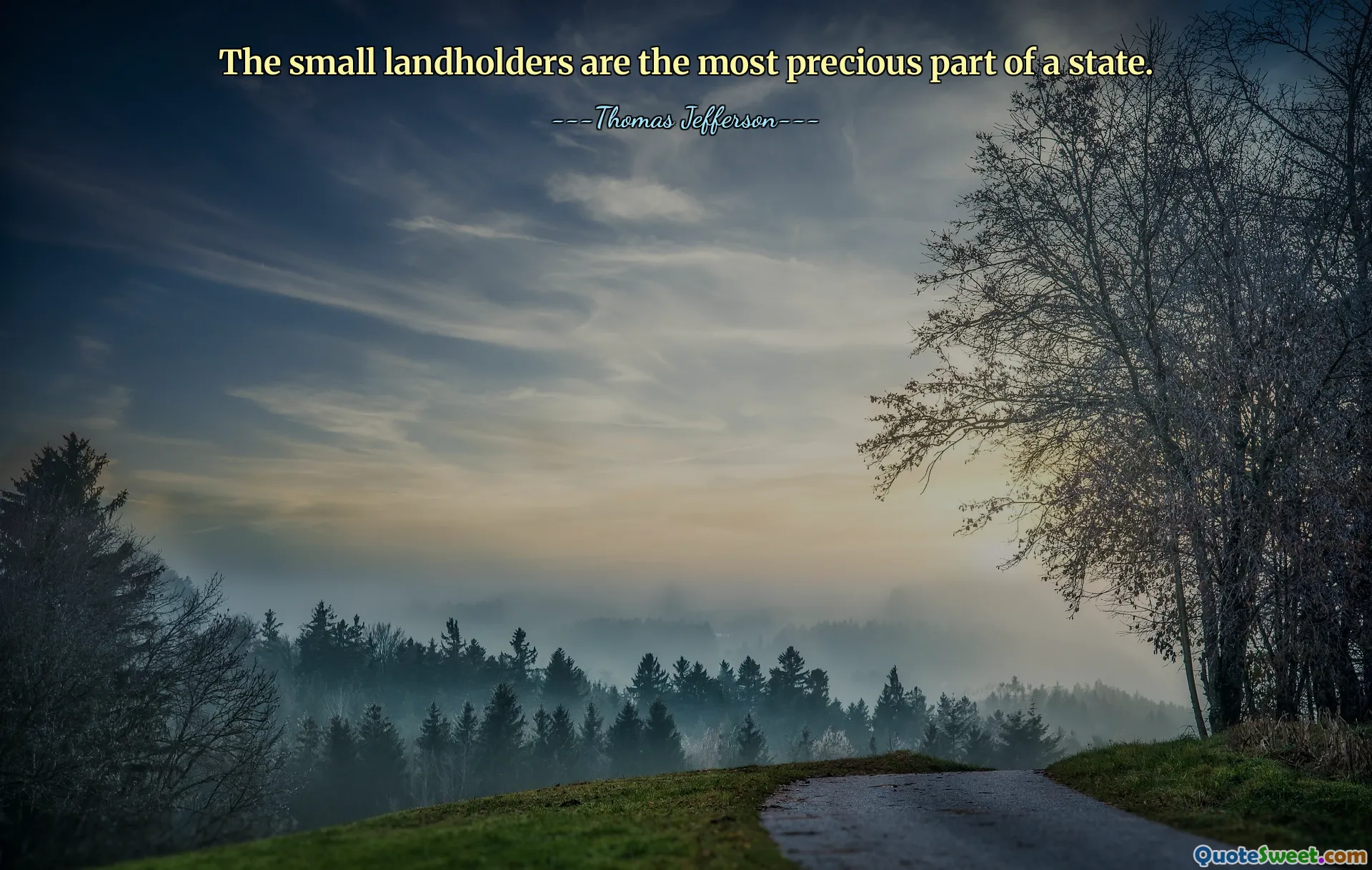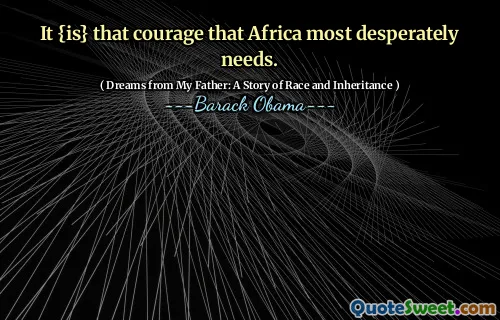
The small landholders are the most precious part of a state.
The quote underscores the fundamental importance of small landowners within a society. Small landholders often symbolize stability, independence, and engagement at a grassroots level. Their role is pivotal because they are directly invested in their community and economy, fostering a sense of responsibility and care for local resources. Such individuals tend to be more committed to the well-being of their land and community, which can translate into more sustainable and attentive stewardship of land and resources. In contrast to large landowners or absentee landlords, small landholders are more likely to maintain personal ties and accountability, encouraging practices that benefit the broader social fabric.
Furthermore, small landholders contribute to social equity by distributing landownership more evenly, helping to prevent the extreme concentrations of wealth and power that can destabilize a nation. They often serve as a balanced middle class—powerful enough to influence democratic processes but grounded enough to promote stability and continuity. This role becomes especially critical during times of social upheaval or political change. Encouraging a class of responsible small landholders can promote policies fostering rural development, self-sufficiency, and community resilience.
Beyond economic aspects, these landholders embody a connection to the land and tradition, nurturing local cultures and histories. Their presence in society reinforces the democratic ideal that ownership and participation should be within reach of ordinary citizens rather than concentrated within a few elite families. Ultimately, the health of a nation relies on a broad base of engaged, responsible landowners—those who have a personal stake in their environment and in the future stability of their society. As such, defending and fostering this class of small landholders can contribute significantly to national progress and cohesion.










